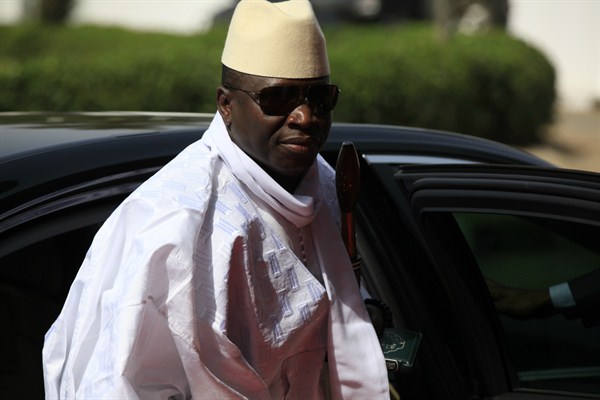The series of protests that have gripped parts of Gambia since mid-April present a serious political test for longtime President Yahya Jammeh, who has ruled the tiny West African state since seizing power in a bloodless coup nearly 22 years ago. The protests come at a time when the Gambian government faces international censure for alleged human rights violations, amid reports of security forces employing heavy-handed tactics against demonstrators. With a deteriorating fiscal situation and a presidential election scheduled for December, Gambia could find itself mired in turmoil for months to come.
Yet despite Jammeh’s precarious position, the Gambian strongman is unlikely to see his hold on power crumble in the immediate future. He still appears to enjoy the support of Gambia’s security apparatus and elements of Gambian society. The absence of a clear alternative to Jammeh within the ruling Alliance for Patriotic Reorientation and Construction (APRC) reduces the possibility of a successful palace coup. What’s more, his political opponents remain poorly placed to bring down Jammeh, either via street protests or the ballot box.
Demonstrations against Jammeh began on April 14, when supporters of the opposition United Democratic Party (UDP) congregated in Serekunda, a suburb of the Gambian capital of Banjul, to demand electoral reforms prior to December’s presidential poll. Police reacted by dispersing the crowd and detaining over 20 protesters, including UDP youth leader Solo Sandeng. Sandeng subsequently died in custody, allegedly after being tortured at the hands of Gambia’s National Intelligence Agency. Fresh protests on April 16 encountered fierce resistance from Gambian security forces, who purportedly assaulted demonstrators and arrested at least 30 activists. Among those jailed was the UDP’s leader, the human rights lawyer and opposition stalwart Ousainou Darboe. Since then, Darboe and other activists have been charged with six different offenses, including rioting, illegal protest and incitement to violence.

